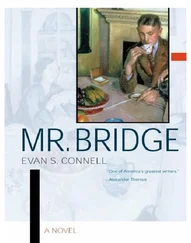Once he surmised that Aleksei had recruited Galya to spy on him, Kiril spoke guardedly and with circumspection. Still, her presence in his life made it difficult for him to prepare for his attempted defection. He had never been to East Berlin and knew little about the city generally, even less about its geography. Without calling attention to himself, he’d had to study East and West Berlin’s geographical relationship to each other, and theirs to East and West Germany. He pored over street maps of Potsdam and West Berlin. Learned all he could about Glienicker Bridge and the Havel River that flowed beneath it. Made a mental note to find out about the East German launches that patrolled under the bridge. None of this was easy to do in a police state, let alone while under ongoing surveillance by a woman with whom he had a professional, as well as a personal, relationship. By snatching some time here and there, visiting libraries with plausible excuses, talking to the few friends he could trust, walking casually through museums, Kiril had to admit he was making progress, albeit much too slowly.
* * *
Aleksei Andreyev had no such constraints. Immediately after his intriguing chat with Kiril, he turned his researchers loose in Moscow and tasked the New York and Washington KGB stations with turning the life of the eminent Dr. Kurt Brenner inside out. He already knew Brenner had been born in what was now East Berlin, and he was privy to Brenner’s war record. But he wanted to know more about the years in between. Much more. More, perhaps, than Kurt Brenner knew about himself.
In the next several months, the intelligence flowed in a steady stream. Because of the lack of pre-Revolution records, the civil war following the Bolsheviks’ seizure of power, and then two world wars, Aleksei’s researchers could ascertain only that Brenner’s mother had been born in Czarist Russia sometime around 1901. After that, all traces of her had disappeared in Russia and in the Soviet Union until the 1920s, when she surfaced in Berlin, married a German citizen, and had a son.
Aleksei had learned earlier that in 1922, Brenner was born in what later would become East Germany. He even knew the name of the borough: Pankow. Aleskei surmised that in 1931, the Brenners, in the wake of the Nazi rise to power and apprehensive of the threat facing assorted groups—Jews, Communists, Democratic Socialists—had emigrated to the United States.
Brenner’s mother and father were physicians. Their son, Aleksei learned, had been a prodigy as early as age ten. School work was never a problem. Kurt Brenner consistently mastered scientific games designed for his age group. His parents had subscribed to magazines on his behalf, Popular Science among them. When he was twelve, Brenner started to hang around his parents’ medical office, asking questions. Harvard College accepted him in 1936 when he was only fifteen—a pre-med major, a biology minor. Three years later, he had his B.S., and in February 1942 his Ph.D in microbiology. There was no doubt that Kurt Brenner was a wunderkind.
But there was a dark side, Aleksei noted with considerable interest. Prodigy or not, Brenner never seemed to be surrounded by a circle of real friends. He was aloof and driven. Even more intriguing, few of his peers trusted him. He had a reputation for breaking his word. For being late to some affair or not showing up at all. For infuriating a pal whose girlfriend was supposed to be off limits. Relationships with girls were invariably short-lived. When he was older, his love life followed the same pattern—casual affairs that ended badly.
Several months before his graduation from Harvard, Brenner had coolly assessed his situation. The Japanese had bombed Pearl Harbor and were racking up gains throughout Asia. The Germans had declared war on the United States and were rolling through Europe. Brenner would become a physician—a heart surgeon. That was carved in stone. But being twenty-one years old and soon to lose his graduate school deferment, he was about to be drafted—which meant he would have no control over what they’d do with him despite his fluent German and his stellar academic credentials. A classmate who had been drafted the year before, and who had a Ph.D in advanced civil engineering, was stuck in the infantry—not a pleasant prospect.
Typically, Brenner came up with a plan, a report of which had found its way into the KGB archives. He had convinced an Army recruiter into believing he had a job offer from a microbiology foundation that was doing classified research for the government—something vaguely having to do with chemical warfare, and that he was entitled to an “essential industry” deferment like, say, coal miners. If he took the job, that is. But what he really wanted, he’d told the recruiter, was to enlist and be trained as a medical corpsman. That way, he would get a jump on medical school.
Several weeks later, Kurt Brenner—prodigy, Bachelor of Science, Doctor of Microbiology—had become, in three years, Sergeant First Class Brenner. Called Doc by the soldiers he served with, Brenner was back in Germany, the land of his birth.
Aleksei scanned the report.
Brenner will rue the day he did that. It’s what led to our hold on him.
He dug into the more recent threads of Kurt Brenner’s life. After medical school at Harvard and a residency at a famous Texas heart institute, Dr. Kurt Brenner was awarded several prestigious surgery fellowships. He joined the cardiology faculty at New York’s Columbia Presbyterian Hospital, where he soon began to shine as an outstanding heart surgeon. He borrowed money to start the Manhattan Pediatric Heart Institute. He was the recipient of many medical and philanthropic awards.
Aleksei reached for a file labeled “miscellaneous.”
Parents unreservedly proud of their son.
Marriage in 1955 to Adrienne Kalda, journalist and outspoken anti-communist . No children.
Excessive drinker, but not alcoholic.
Profligate with money.
At least two extra-marital affairs in the past five years, one with Grace Manning, wife of Medicine International’s Russell Manning.
Aleksei smiled, reminded that Medicine International’s Artificial Heart Symposium, scheduled for September, was proceeding apace but there were a host of problems.
According to his sources, by the time Russell Manning returned to New York in late winter after an extended vacation, Kurt Brenner had sent M.I. a list of conditions before he’d accept their formal invitation. As the undisputed star of the show in the forefront of international artificial heart research, Brenner was demanding a lot of perks. Private chef. Large suite on the hotel’s top floor. His own heart-lung machine operator from New York. An American assistant surgeon and anesthesiologist—both of them board-certified. His own translators. Even his favorite operating room nurse.
Which may explain why Brenner is having trouble convincing his wife to accompany him.
There was more. The West Germans were being skittish about sharing the billing with French surgeons. The French wanted Brenner to operate on a Frenchman. Financing from either the German government or the Soviet Union could not be guaranteed. The hosts might have insufficient hotel space. And on and on.
Aleksei savored the moment.
Looks like it’s time to invite the illustrious Dr. Kurt Brenner to the other half of Berlin .
* * *
Brenner was stunned.
The letter had arrived via a special courier from Washington, D.C. He held the single sheet of paper as though it had been dusted with anthrax.
Rising from his soft camel-colored leather office chair, Brenner crossed the room and closed the door. He returned to his chair and reread the letter from the German Democratic Republic, Washington, D.C.
Читать дальше












